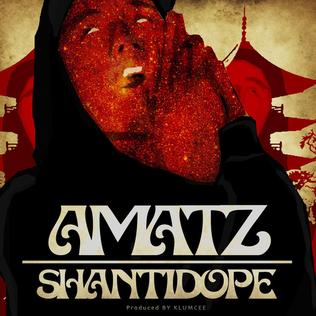 W
WAmatz is a song by Filipino rapper Shanti Dope that was released under Universal Records on March 22, 2019. The word "Amatz" is a slang word for Tagalog “tama” or kick, which could refer to being drunk or high on drugs.
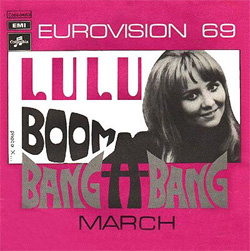 W
W"Boom Bang-a-Bang" is a song recorded by Scottish singer Lulu. The song was written by Alan Moorhouse and Peter Warne. It is best known as the British winning entry at the Eurovision Song Contest 1969, held in Madrid.
 W
WDegenerate music was a label applied in the 1930s by the Nazi government in Germany to certain forms of music that it considered harmful or decadent. The Nazi government's concerns about degenerate music were a part of its larger and better-known campaign against degenerate art. In both cases, the government attempted to isolate, discredit, discourage, or ban the works.
 W
W"Don't Cry for Me Argentina" is a song recorded by Julie Covington for the 1976 concept album Evita, later included in the 1978 musical of the same name. The song was written and composed by Andrew Lloyd Webber and Tim Rice while they were researching the life of Argentine leader Eva Perón. It appears at the opening of the first and second acts, as well as near the end of the show, initially as the spirit of the dead Eva exhorting the people of Argentina not to mourn her, during Eva's speech from the balcony of the Casa Rosada, and during her final broadcast.
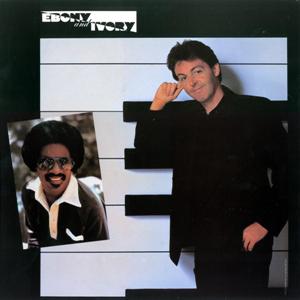 W
W"Ebony and Ivory" is a song that was released in 1982 as a single by Paul McCartney and Stevie Wonder. It was issued on 29 March that year as the lead single from McCartney's album Tug of War. Written by McCartney, the song aligns the black and white keys of a piano keyboard with the theme of racial harmony. The single reached number one on both the UK and the US charts and was among the top-selling singles of 1982 in the US. During the apartheid era, the South African Broadcasting Corporation banned the song after Wonder dedicated his 1984 Academy Award for Best Original Song to Nelson Mandela.
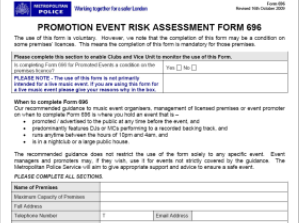 W
WForm 696 is a risk assessment form which the London Metropolitan Police requests promoters and licensees of events to complete and submit 14 days in advance of an event in 21 London boroughs. Non-compliance with this may result in police opposition to event licences being granted. This form has become controversial due to its stipulation that names, stage names, private addresses, and phone numbers of all promoters, DJs and artists be listed. The form also asks for a description of the style of music to be performed and the target audience. The original form asked for details of ethnic groups likely to attend the performance, but that version was revised to omit those parameters in December 2008. In November 2017, the Met Police announced that following a review of how the form was being used it was to be scrapped.
 W
WFrank Zappa Meets the Mothers of Prevention is a 1985 album by Frank Zappa. The album was originally released in two slightly different versions in the US and Europe.
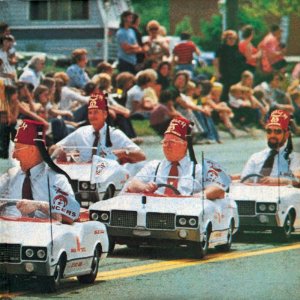 W
WFrankenchrist is the third album by the American hardcore punk band Dead Kennedys, released in 1985 on Alternative Tentacles.
 W
W"Games Without Frontiers" is a song written and recorded by English rock musician Peter Gabriel. It was released on his 1980 self-titled solo album, where it included backing vocals by Kate Bush. The song's lyrics are interpreted as a commentary on war and international diplomacy being like children's games. The video includes film clips of Olympic events and scenes from the 1951 educational film Duck and Cover, which used a cartoon turtle to instruct US schoolchildren on what to do in case of nuclear attack. This forlorn imagery tends to reinforce the song's anti-war theme.
 W
W"Go All the Way" is a single by American rock group Raspberries, released in July 1972 and written by band leader Eric Carmen. The song reached the Top 5 on three principal US charts: number 5 on the Billboard Hot 100, number 4 on Cashbox and number 3 on Record World. The single sold more than 1.3 million copies, earning the band their only certified Gold Record. It was their second single release, their all-time biggest US hit, and appeared on their debut LP, Raspberries.
"I Am the Walrus" is a song by the English rock band the Beatles from their 1967 television film Magical Mystery Tour. Written by John Lennon and credited to Lennon–McCartney, it was released as the B-side to the single "Hello, Goodbye" and on the Magical Mystery Tour EP and album. In the film, the song underscores a segment in which the band mime to the recording at a deserted airfield.
 W
W"Kodachrome" is a song by the American singer-songwriter Paul Simon. It was the lead single from his third studio album, There Goes Rhymin' Simon (1973), released on Columbia Records. The song is named after Kodak's now-discontinued reversal film brand Kodachrome.
 W
W"Lola" is a song written by Ray Davies and performed by English rock band the Kinks on their album Lola Versus Powerman and the Moneygoround, Part One. The song details a romantic encounter between a young man and a possible cross-dresser, whom he meets in a club in Soho, London. In the song, the narrator describes his confusion towards Lola, who "walked like a woman but talked like a man".
 W
W"Lucy in the Sky with Diamonds" is a song by the English rock band the Beatles from their 1967 album Sgt. Pepper's Lonely Hearts Club Band. It was written primarily by John Lennon and credited to the Lennon–McCartney songwriting partnership. Lennon's son Julian inspired the song with a nursery school drawing that he called "Lucy – in the sky with diamonds". Shortly before the album's release, speculation arose that the first letter of each of the title nouns intentionally spelled "LSD", the initialism commonly used for the hallucinogenic drug lysergic acid diethylamide. Lennon repeatedly denied that he had intended it as a drug song. He attributed the song's fantastical imagery to his reading of Lewis Carroll's Alice in Wonderland books.
 W
WMo Li Hua is a popular Chinese folk song from the Jiangnan region. The song dates back to the 18th century. Over time, many regional variations were created, and the song gained popularity both in China and abroad.
 W
WMusic in Nazi Germany, like all cultural activities in the regime, was controlled and "co-ordinated" (Gleichschaltung) by various entities of the state and the Nazi Party, with Propaganda Minister Joseph Goebbels and the prominent Nazi theorist Alfred Rosenberg playing leading – and competing – roles. The primary concerns of these organizations was to exclude Jewish composers and musicians from publishing and performing music, and to prevent the public exhibition of music considered to be "Jewish", "anti-German", or otherwise "degenerate", while at the same time promoting the work of favored "Germanic" composers, such as Richard Wagner and Anton Bruckner. These works were believed to be positive contributions to the Volksgemeinschaft, or German folk community.
 W
W"My Ding-a-Ling" is a novelty song written and recorded by Dave Bartholomew. It was covered by Chuck Berry in 1972 and became his only number-one Billboard Hot 100 single in the United States. Later that year, in a longer unedited form, it was included on the album The London Chuck Berry Sessions. Guitarist Onnie McIntyre and drummer Robbie McIntosh who later that year went on to form the Average White Band, played on the single along with Nic Potter of Van der Graaf Generator on bass.
 W
W"One Toke Over the Line" is a song written and performed by American folk rock duo Brewer & Shipley. It is a track from their 1970 LP Tarkio, and was released as their debut single in early 1971.
 W
W"Only the Good Die Young" is a song from Billy Joel's 1977 rock album The Stranger. It was the third of four singles released from the album.
 W
W"Parará Tibum" is a song by Brazilian funk carioca artist Tati Zaqui. Her first professional release as a recording artist, it came out on June 23, 2014. It was inspired by, and uses samples of, the song "Heigh-Ho" off the 1937 Disney film Snow White and the Seven Dwarfs. After a video of actress Bruna Marquezine dancing to the song surfaced on the Internet, it became a viral hit, prompting Zaqui to come up with the "Parará Tibum Challenge", encouraging people to record themselves dancing to the song; participants included Anitta, Preta Gil and Cláudia Leitte.
 W
WThe Parental Advisory label is a warning label introduced by the Recording Industry Association of America (RIAA) in 1985 and adopted by the British Phonographic Industry (BPI) in 2011. It is placed on audio recordings in recognition of profanity or inappropriate references, with the intention of alerting parents of material potentially unsuitable for children. The label was first affixed on physical 33 1/3 rpm records, compact discs and cassette tapes, and it has been included on digital listings offered by online music stores.
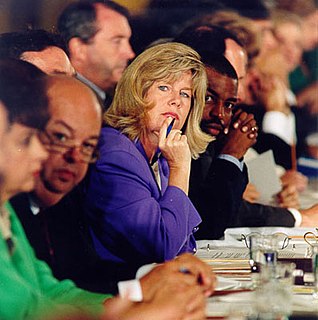 W
WThe Parents Music Resource Center (PMRC) was an American committee formed in 1985 with the stated goal of increasing parental control over the access of children to music deemed to have violent, drug-related or sexual themes via labeling albums with Parental Advisory stickers. The committee was founded by four women known as the "Washington Wives"—a reference to their husbands' connections with government in the Washington, D.C. area. The women who founded the PMRC are Tipper Gore, wife of Senator and later Vice President Al Gore; Susan Baker, wife of Treasury Secretary James Baker; Pam Howar, wife of Washington realtor Raymond Howar; and Sally Nevius, wife of former Washington City Council Chairman John Nevius. The PMRC eventually grew to include 22 participants before shutting down in the mid-to-late 1990s.
 W
WRevelation is the debut studio album by the Welsh progressive rock band Man and was released in January 1969. It was noted for the simulated orgasm on "Erotica", which received a UK ban.
 W
W"Run for Your Life" is a song by the English rock band the Beatles from their 1965 album Rubber Soul. It was written primarily by John Lennon, though credited to Lennon–McCartney.
 W
W"Sì" is the name of the Italian entry to the Eurovision Song Contest 1974, which finished second behind the Swedish entry "Waterloo" sung by ABBA.
 W
WEric Patrick Clapton, is an English rock and blues guitarist, singer, and songwriter. He is the only three-time inductee to the Rock and Roll Hall of Fame: once as a solo artist and separately as a member of the Yardbirds and of Cream. Clapton has been referred to as one of the most important and influential guitarists of all time. Clapton ranked second in Rolling Stone's list of the "100 Greatest Guitarists of All Time" and fourth in Gibson's "Top 50 Guitarists of All Time". He was also named number five in Time magazine's list of "The 10 Best Electric Guitar Players" in 2009.
 W
W"Teen Angel" is a teenage tragedy song written by Jean Dinning (1924–2011) and her husband, Red Surrey, and performed by both Jean's brother, Mark Dinning, and Alex Murray in 1959. "Teen Angel" was released in October 1959. The song was not an instant success, with radio stations in the U.S. banning the song, considering it too sad. Despite the reluctance of radio stations, the song continued to climb the charts. In the last week of 1959, the single jumped from #100 to #50 on the Billboard Hot 100 chart. It went on to reach #1 on the U.S. Billboard Hot 100 and number thirty-seven in the UK Singles Chart. Billboard ranked it as the No. 5 song of 1960.
 W
W"Too Drunk to Fuck" is the fourth single by Dead Kennedys. The record was released in May 1981 on Cherry Red Records with "The Prey" as the B-side. Both songs from this single are available on the rarities album Give Me Convenience or Give Me Death (1987).
 W
W"Wake Up Little Susie" is a popular song written by Felice and Boudleaux Bryant and published in 1957.